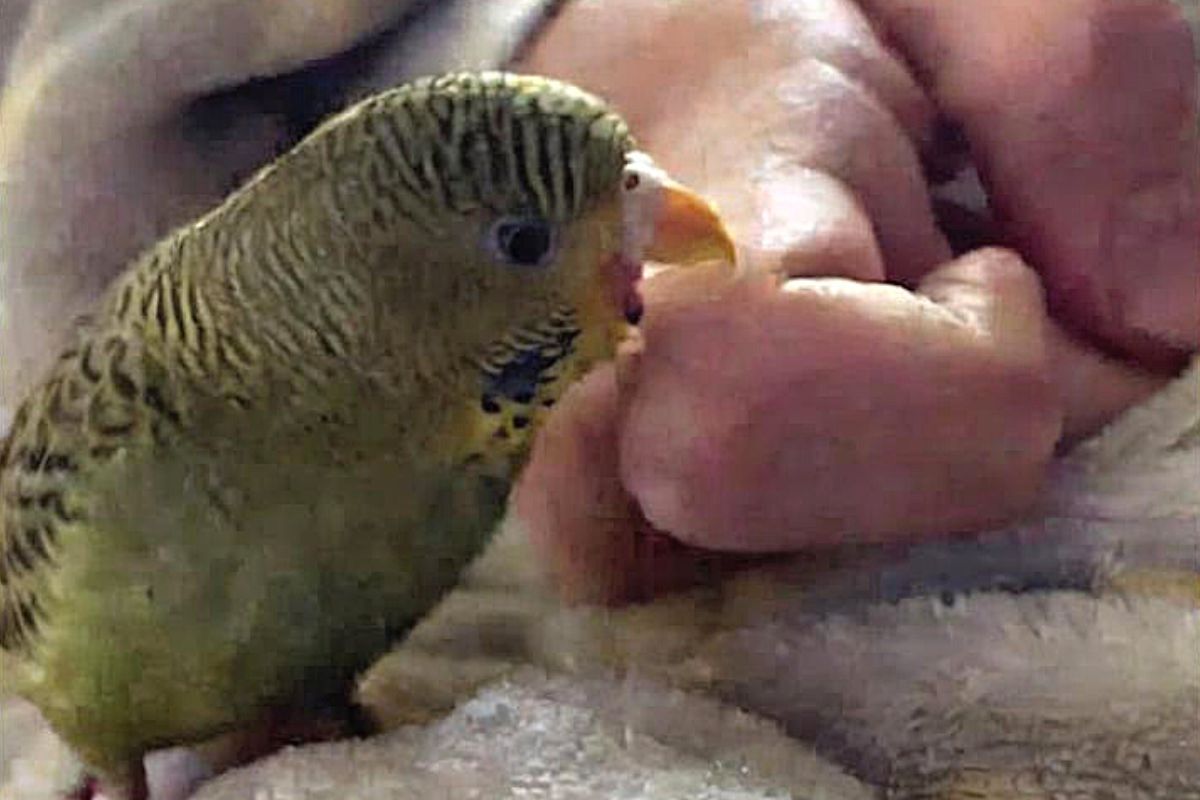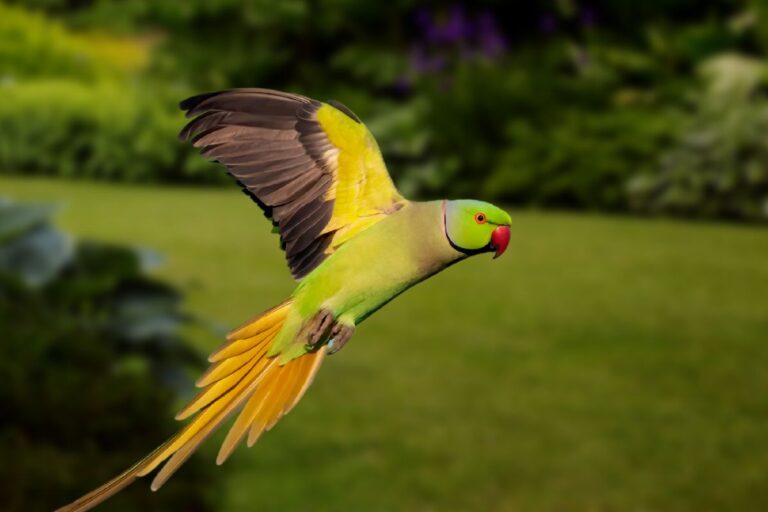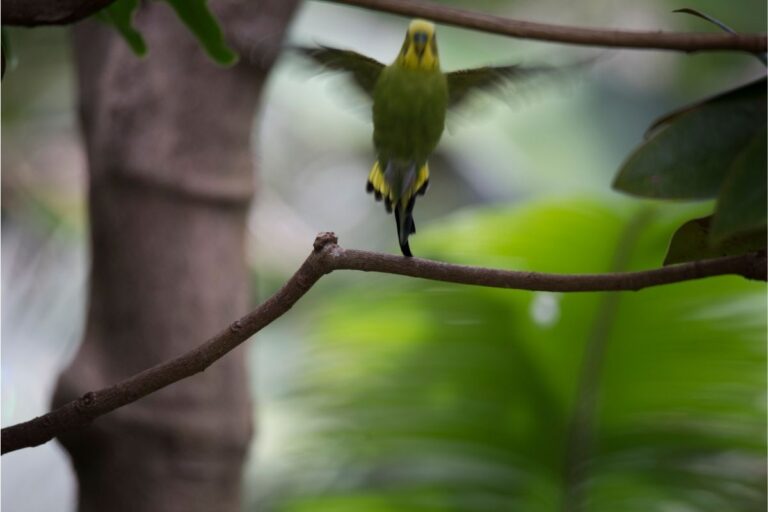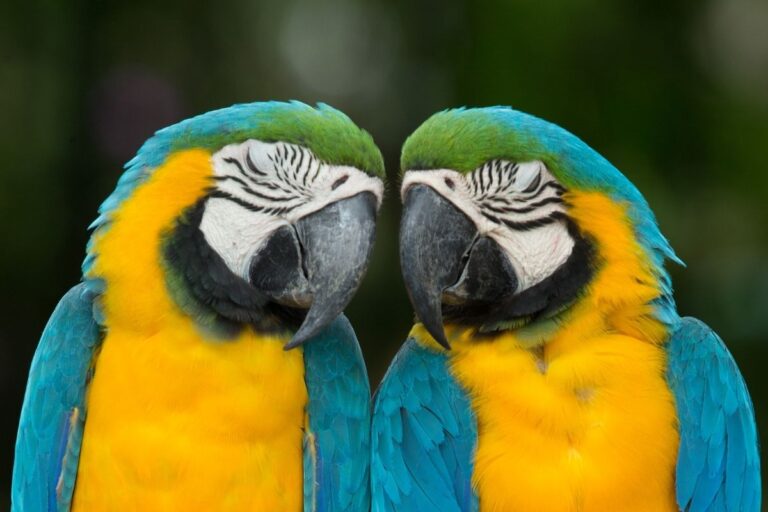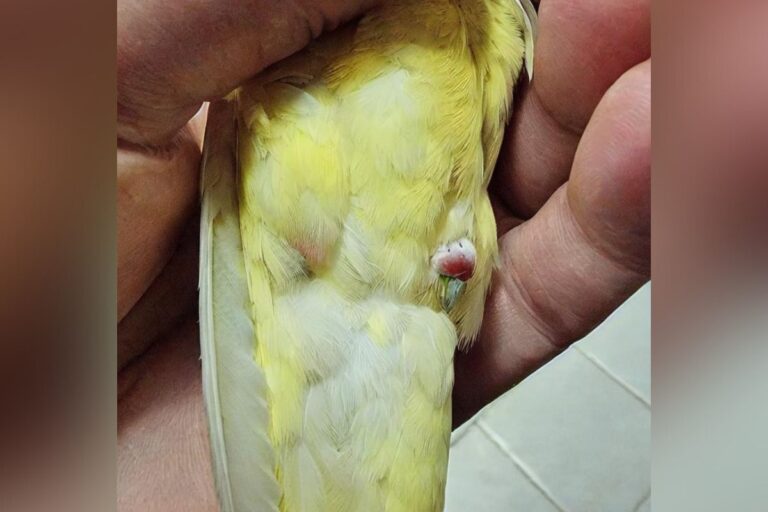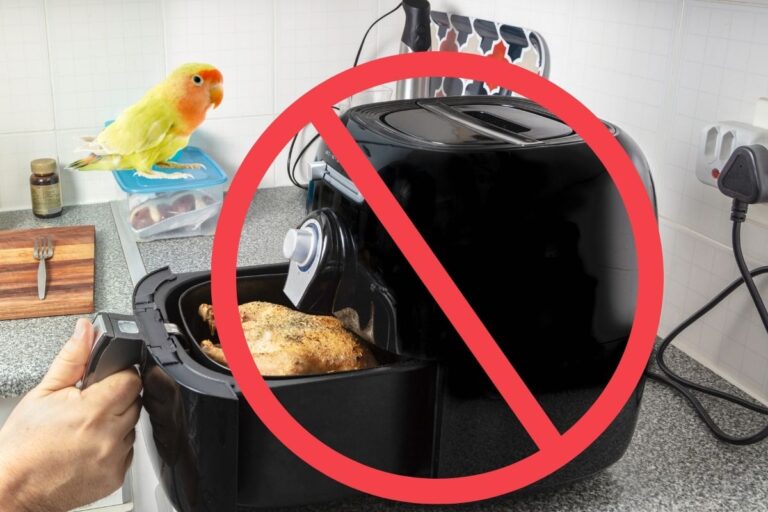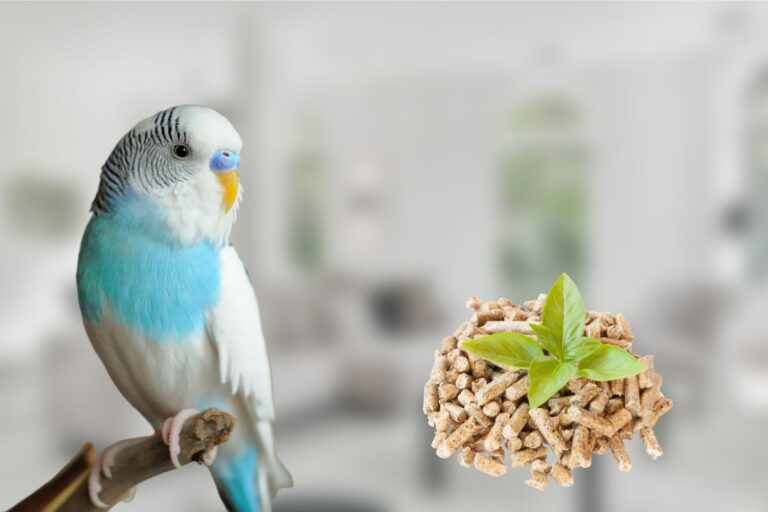Why Does My Parakeet Bite My Nails
Disclosure: The opinions expressed in this post are my own. This post may also contain affiliate links, which means that I will receive a commission if you decide to purchase through my links, at no additional cost to you. As an Amazon Associate, I earn from qualifying purchases.
Do you have a parakeet that likes to nibble on your fingertips? Maybe you thought it was cute at first, but now it’s starting to hurt!
As strange as it may seem, there are actually a few reasons why a parakeet might bite your nails. It could be indicative of good things or bad things – and in this article, we’ll delve into the possible explanations for this curious behavior.
So if you’re tired of wincing every time your bird lands on your hand, read on to discover why your parakeet is biting your nails and what you can do about it!
Why Does My Parakeet Bite My Nails? Here are Some Reasons
Parakeets or parrots biting their owner’s nails is a common behavior that can indicate several things. In most cases, the bird is simply trying to groom its owner and may see their nails as part of their feathers or beak. However, aggression is not uncommon in parakeets as well, and biting could be a way your parakeet is exhibiting its aggression. Let’s take a look at some of the most common reasons why your parakeet is biting your nails.
1. Curiosity – Your Parakeet is Just Exploring You
One reason why your parakeet may bite your nails is due to their natural curiosity. These birds are known for exploring their surroundings with their beaks, and you happen to be part of their environment.
By biting your nails, your parakeet is simply trying to learn more about you and the things around them. It’s not meant as a harmful or aggressive behavior, but rather an attempt at discovery.
Perhaps you could be wearing colored nail polish, which is particularly attractive to birds due to their keen sense of color vision. So, if you have painted finger nails, your parakeet may be drawn to explore them with its beak.
When your parakeet bites your nails, it’s important to stay calm and patient. Don’t pull away or react too strongly, as this can actually reinforce the behavior by giving attention to it. Instead, gently redirect your bird’s attention with a toy or treat.
It’s also a good idea to provide plenty of opportunities for exploration and playtime outside of nail-biting behavior. Offer toys and perches that encourage physical activity and mental stimulation, such as puzzles and swings.
With consistent training and positive reinforcement, you can teach your parakeet that there are other ways to explore and interact with you beyond nail-biting. Over time, this curious tendency may decrease or disappear altogether.
2. Stress, Anxiety, Being Startled or Frightened – Unideal Environment
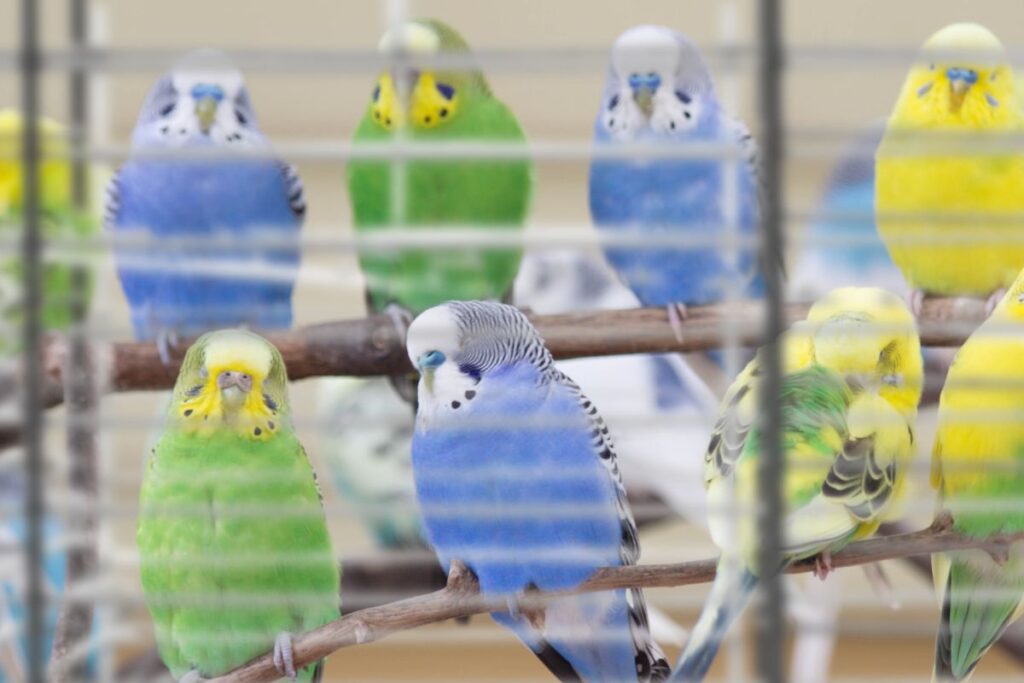
Parakeets may bite their owner’s nails due to if they are experiencing stress, anxiety, being startled or frightened. It is important for parakeet owners to understand that biting is a natural response for birds to protect themselves from potential harm.
Parakeets have a strong instinct to protect themselves from perceived danger, and this can lead to biting behavior when they feel threatened or anxious. They may have experienced stressful situations in the past, such as being handled roughly or placed in an unfamiliar environment, which could contribute to their aggressive behavior.
Regular interaction and training can help build trust and confidence between you and your parakeet, reducing the likelihood of biting behavior from stress or fear.
It’s also important not to take biting personally – parakeets don’t respond out of malice but rather as a natural way of expressing their emotions. With patience and consistency in training efforts, parakeet owners can help reduce biting behavior over time.
3. Aggression – Your Parakeet May Be Exhibiting Aggressive Behaviors
An aggressive bite feels different from a playful one. It’s a true bite that’s much for forceful and you may even feel pain or discomfort.
Aggression in parakeets can be a common behavior and may sometimes lead to biting. This type of behavior can be triggered by various factors such as lack of socialization, boredom or territorial issues. You should be able to tell if your parakeet is being aggressive by observing its body language. A hard true bite is a tell-tale sign that it’s a sign of anger.
It is important to understand that every bird is unique and may behave differently. Parakeets may show aggression towards their owners if they feel uncomfortable in their presence or if they perceive them as a threat to their territory.
To address aggressive behavior, it’s important to create a safe and comfortable environment for your bird. Ensure that your bird has enough space to fly around, plenty of toys and perches to keep them entertained, and a consistent daily routine.
4. Bored or Seeking Attention – Parakeets are Social Creatures
Parakeets are highly social birds that thrive on social interaction and attention from their caregivers. Thus, it is essential to provide them with plenty of love and attention, as neglect can lead to boredom and behavioral problems.
One such problem is nail biting, a sign of their tension or boredom that stems from a lack of stimulation. By providing your parakeet with ample opportunities for play, exploration, and socialization, you can help to curb these behaviors and foster a happy, healthy, and well-adjusted pet bird. Furthermore, regular interaction and training can encourage positive behaviors, making nail biting a thing of the past.
How to Stop Nail Biting Behavior in Parakeets
If your parakeet has developed a habit of biting your nails, there are several steps you can take to stop this behavior. Here are a few suggestions:
Provide Plenty of Toys
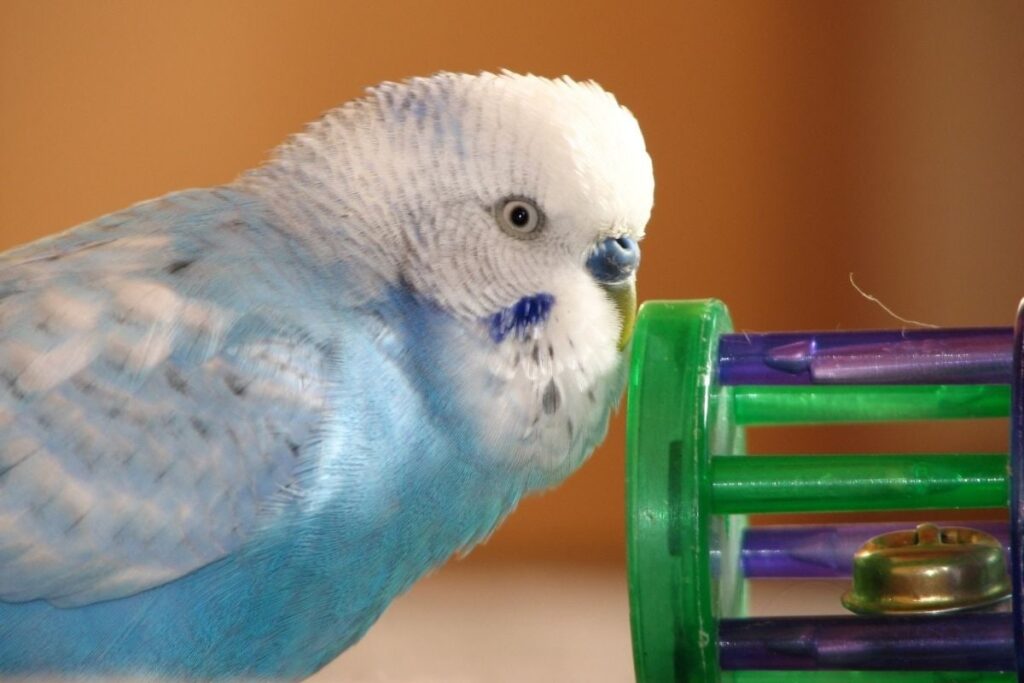
Offer a variety of toys such as swings, mirrors, ladders, and chew toys to keep your parakeet mentally and physically stimulated. Rotate their toys regularly to avoid boredom and encourage playtime.
Not only does having toys prevent nail-biting behavior, but it also helps to promote exercise and curb destructive tendencies in your feathered friend. So make sure to stock up on fun and interactive toys for your parakeet’s happy and healthy wellbeing.
Use Positive Reinforcement
Another effective technique for stopping nail biting in parakeets is positive reinforcement. Whenever your bird is not biting your nails, make sure to offer praise and treats as a reward.
It’s important to remember that punishing your parakeet for nail biting behavior is not effective and can actually make the behavior worse. Instead, focus on providing positive reinforcement and redirecting its attention towards more appropriate ways to satisfy its urge to chew.
Build Trust & Confidence
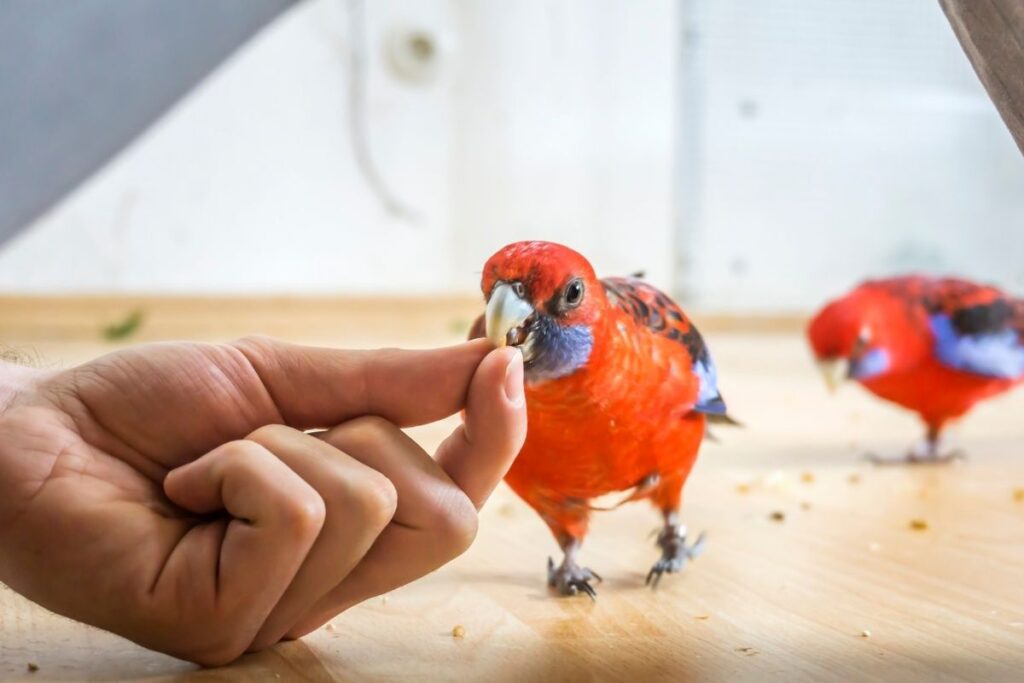
Building trust and confidence is essential when it comes to your relationship with your parakeet. Parakeets are sensitive creatures that require an environment in which they feel safe and comfortable if they are to remain healthy and happy.
It’s important to approach your parakeet with care and gentleness, particularly if you want to train them not to bite your nails. Start by sitting near the bird’s cage or perch for a few minutes each day without making any sudden movements.
Once the bird is comfortable with you being around, move on to offering it small amounts of food or water from your hand, gradually building up a rapport until the animal begins to trust you.
When you’re trying to train your parakeet not to bite your nails, it’s crucial that you remain calm and patient. Avoid making any sudden movements, loud noises or fast gestures that might scare the bird while trying slowly feed it treats from your fingers.
Remember that building trust takes time – be sure to keep up with daily training sessions and stick at it over a period of days or even weeks. With time and effort, you can create a bond built on mutual respect between yourself and your feathered friend.
Consult a Veterinarian for Expert Advice
You may also want to consider bringing in an expert in avian behavior or consulting with your veterinarian for additional advice on how to stop this behavior in your parakeet.
A vet may recommend behavioral training techniques or even medication to help manage certain behaviors. By seeking out professional advice, you’re taking an important step in ensuring the health and well-being of your beloved pet.
Final Words
Remember, providing your parakeet with proper enrichment and attention can go a long way in preventing undesirable behaviors. By showing patience and understanding towards your feathery friend, you’ll likely develop a stronger bond while also maintaining their overall well-being.
With patience and dedication, it’s possible to break the habit of nail biting in birds.



